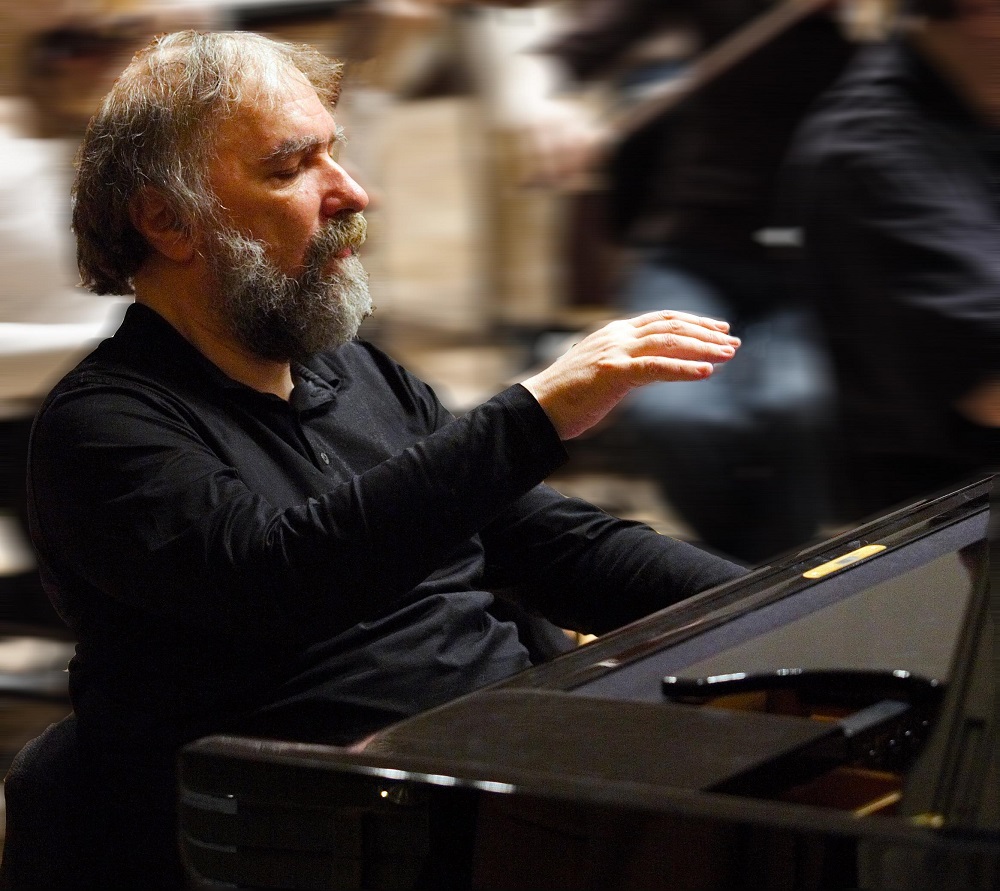
For the past two decades, the Romanian pianist Radu Lupu has chosen not to record any music. He does not allow radio broadcasts of his playing, he does not give press interviews, and he has almost no social media presence. This had made his performances all the more prized. Lupu, who turns seventy on November 30, is far more than a great pianist; listening to him, my attention slips away from the beauty and mastery of his piano playing, deeply impressive though it is, with a rich palette of sound and resonance, control over chordal voicing fueled by an exceptionally refined harmonic sense, and a muscular apparatus that accurately plots into reality his imagination of the shape and timing of musical events. Soon, I find I am taken deep below and far above the surface. I think of the intimate occasion when Lupu played Schubert’s Second Moment Musicaux as encore for about forty of us who wouldn’t leave or stop applauding after his recital in Madrid’s Auditorio Nacional. Because of the silences in the pauses, and the spaces between the decaying notes of the piano, the ears felt like they could taste the air.
As he plays, Lupu projects a state of deepest contemplation and responsiveness to the inner life of a musical composition. Motivic repetitions become perceptible as rhymes, the structurally important is differentiated from the ornamental, the stretching and contracting of musical time acquires an internal logic and a living, breathing musical structure emerges. The force of volume has little effect on these musical processes. Instead they become audible through Lupu’s intense attentiveness to the piece. It appears to us organically rich in content, without any need of extraneous effects.
Ferruccio Busoni once wrote about the musical art: “It is practically incorporeal. Its material is transparent. It is sonorous air. It is almost Nature itself.” Hearing Lupu conjure air into music in this way feels magical, and to be in the presence of an artist so engrossed is a most intimate, almost voyeuristic experience. Paradoxically, this sense of intimacy isn’t diminished by the presence of many others in the concert hall, but made even greater through communal listening. Lupu’s performance of the first nine measures of Schubert’s final piano sonata is enough to give a sense of the way in which his playing embraces and envelops the entire concert hall in mystery and warmth.
Lupu’s playing, especially when experienced live, resists my professional habit of analyzing the elements of interpretation and performance —exactly how he achieves the results that he does. Trying to understand his phrasing, timing, or the effect his bear-like posture at the keyboard has on the sound yields only partial results. The whole is greater than the sum of its ingredients. The instrument, the craftsmanship, even the compositions themselves recede into the background, and there remains a lone figure communicating not just music, but something deeply humane. As Lupu plays, the experience of the composers, earlier encoded into sounds and preserved on paper, seems to be revived from the deep freeze of notation.
It is not often that an artist can accurately describe his musical ideals, and even less often that he lives up to them. In a rare interview from 1992, Lupu describes his expectations of musical performance: “It is richness of experience and fantasy, and the ability to transport. The artist should have his own voice. Everyone tells a story differently, and that story should be told compellingly and spontaneously. If it is not compelling and convincing, it is without value…”
This was the impression I got from hearing Lupu play Brahms’ First Piano Concerto in 2002. I won’t forget that performance in Carnegie Hall, with the Chicago Symphony Orchestra and Daniel Barenboim conducting. It wasn’t just another excellent traversal of a well-known piece, a revisiting of familiar and beloved corners. Rather it gave the illusion of being composed there on the stage – once again fresh, newly original, daring, but never eccentric or seeming as though Lupu had imposed himself on it. Here Lupu performs the same piece with the Finnish Radio Symphony Orchestra.
While we await his future concerts, we can nourish our ears with the new Radu Lupu Complete Recordings, a compilation of his official studio recordings that Decca Classics released in November. Busoni called the recording process “a devilish invention which lacks the demonic nuance.” Many have understood this to mean simply that the quality of sound captured by recordings lacked sufficient gradation. Yet I believe he also meant something more metaphysical, that while recordings capture instrumental sound, there is much else that doesn’t get captured. Our senses create a multilayered impression of experiences. Could Lupu’s absence from the recording studio be explained by an unwillingness to submit himself and his listeners to the reduction of experience necessitated by the smaller dimension of the recorded medium?
Advertisement
Yet even if Lupu’s recordings can’t replicate the experience of hearing him play live, they are still a treasure trove. With only a few exceptions, his studio discography, recorded between 1970 and 1996, is concentrated on central European repertoire of Mozart, Beethoven, Schubert, Schumann and Brahms. These recordings are considered to be an essential addition to the interpretive canon by pianists and listeners alike. He has played a wider range of repertoire in concert, including music by Bartok, Debussy and Janacek, as well as Liszt and Franck. Listeners wishing for more can scour YouTube and pianophile websites for numerous bootleg recordings from Lupu’s concerts.
I find it uplifting simply to contemplate that, in an age when so many musicians feel compelled to spend much of their time engaged in social media and self-promotion, there exist such islands as Radu Lupu, who focuses entirely on his music, and is recognized for it.
Radu Lupu performs Schubert’s third Moment Musicaux as an encore at La Scala, captured by a member of the audience, October 18, 2015.
Radu Lupu: Complete Recordings is available from Decca.


